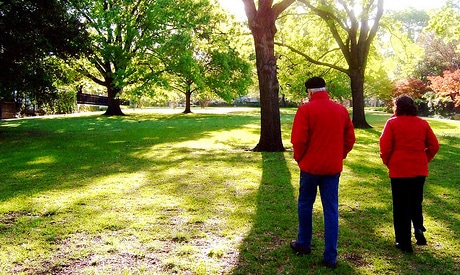
Self-control of your bladder is something we take for granted. It can be extremely embarrassing when you realize that you just had a leak of urine and ‘that smell’ is actually coming from you. The inability to control your urine flow is called urinary incontinence, of which the three most common forms are 1) urge incontinence, also called overactive bladder, 2) stress incontinence and 3) overflow incontinence. In this article, I will discuss the types of urinary incontinence and some effective natural and herbal treatments.
Urge incontinence (overactive bladder)
This is when you develop frequent and strong urges to urinate, even if there is little urine that actually comes out, typically more than seven times a day. In overactive bladder (OAB), the bladder muscles contract much more frequently, leading to the urge to urinate. This can really disrupt your work and social life and is a significant stress in your life. It affects 20 percent of adults over 40 years of age and increases with aging. The causes of OAB include medications such as diuretics, over consumption or sensitivity to caffeine and alcohol, pregnancy or recent child birth, urinary tract infections (UTIs), nerve damage, or other medical conditions. OAB can also be related to foods intolerances, such as to acidic or spicy foods.
Read more about stress
Stress incontinence
This is when physical activity triggers the involuntary loss of urine, such as from laughing, lifting, sneezing, or really anything that puts extra pressure on your bladder and triggers leaking. Stress incontinence is caused by a weakening of the muscles that support the bladder and the urine tube. Situations that can weaken these muscles include childbirth, local injuries and surgeries and medications. This is the most common form of urinary incontinence in women, and other factors increase the risk such as being overweight, smoking and aging overall.
Overflow incontinence
When the bladder does not empty the urine completely, the excess urine can come out at other unexpected times of the day or night – this is overflow incontinence. It is most common in men, due to an enlargement of the prostate gland, which impairs the proper release of urine. Other causes include urine tract obstruction, weak bladder muscles that don’t empty the bladder fully, nerve-related conditions and medications.
Natural remedies for urinary incontinence
A combination of natural treatments can really help reduce the number of bladder accidents you experience. In the case of overactive bladder, learn what foods or food additives may be irritating your urinary tract and bladder muscles. A naturopathic doctor or nutritionist can help you determine which foods may be the trigger. A Japanese study underlying the value of foods in incontinence was published in a prominent journal among urologists. The 2009 study concluded that routine consumption of soy may be a useful treatment to prevent and improve OAB. Certain exercises can also be of benefit: pelvic floor exercises, also known as ‘kegel’ exercises, can help strengthen the muscles that help keep the urine in place. Trying to urinate on a regular basis is another simple method to help ‘retrain’ your bladder to reduce the chance of leaking unexpectedly.
The use of herbs in reducing symptoms and illness has been documented for thousands and thousands of years. Each herb can have multiple medicinal benefits and this is true also for the urinary tract and those who experience urinary incontinence. For example, marshmallow root helps to soothe irritated mucous linings, including of the urinary tract and can help reduce irritations and inflammations. The herbs corn silk and buchu also have similar properties. The herbs goldenrod, nettle, and cleavers have urinary ‘tonic’ properties that can assist in clearing residual urine in the bladder. A common and effective herb used in men with prostate-related overflow incontinence is saw palmetto, as it helps to reduce the prostate size and to clear residual urine from the bladder.
Read more about health boosting herbs
There are many ways that natural medicines can be used to support your bladder health. A combination of methods may work best to help in relieving the experience you have with incontinence.
Photo Credit: jypsygen
Rahim Habib is a Naturopathic Doctor and a writer for Bell Lifestyle Products.











